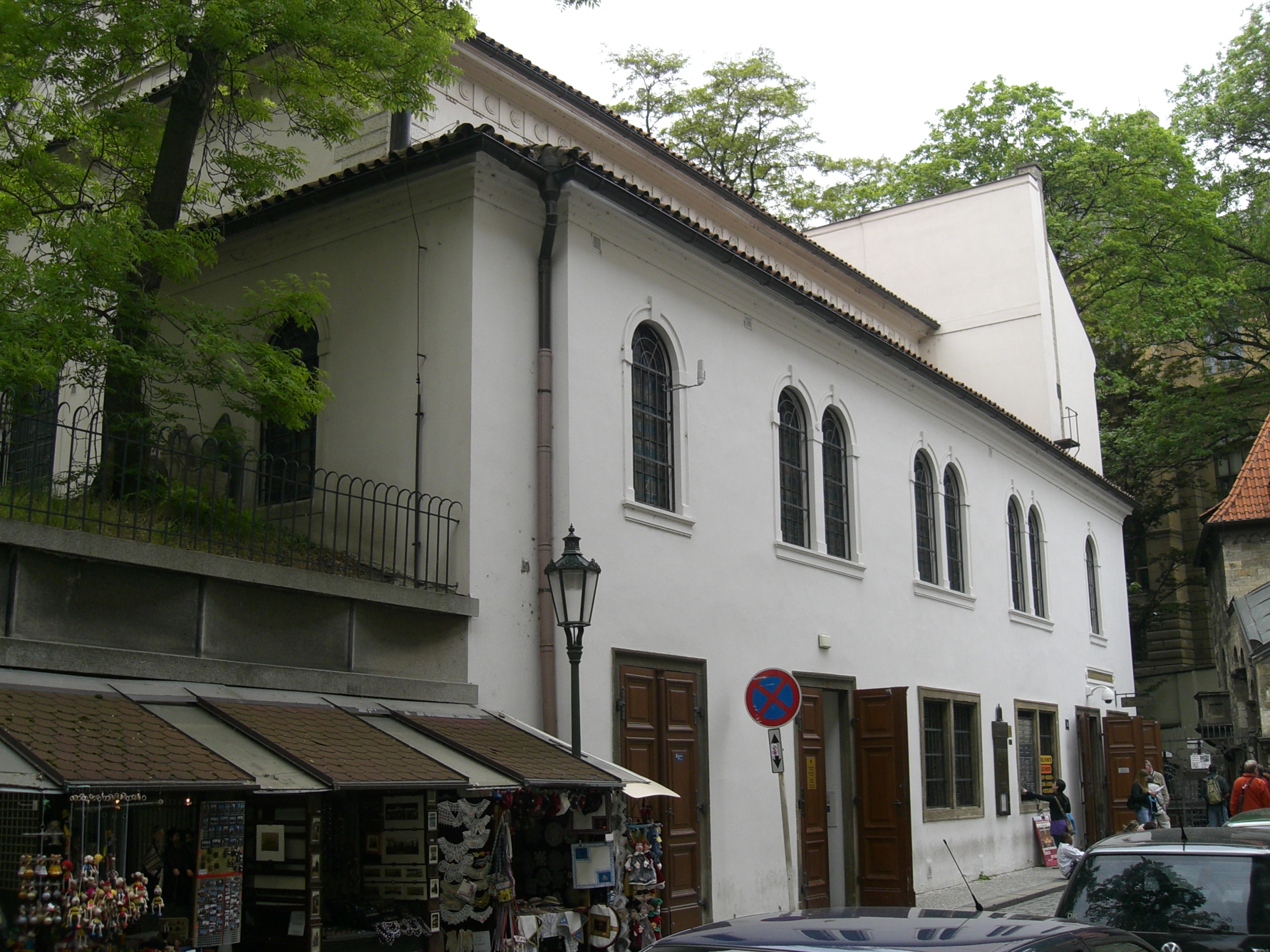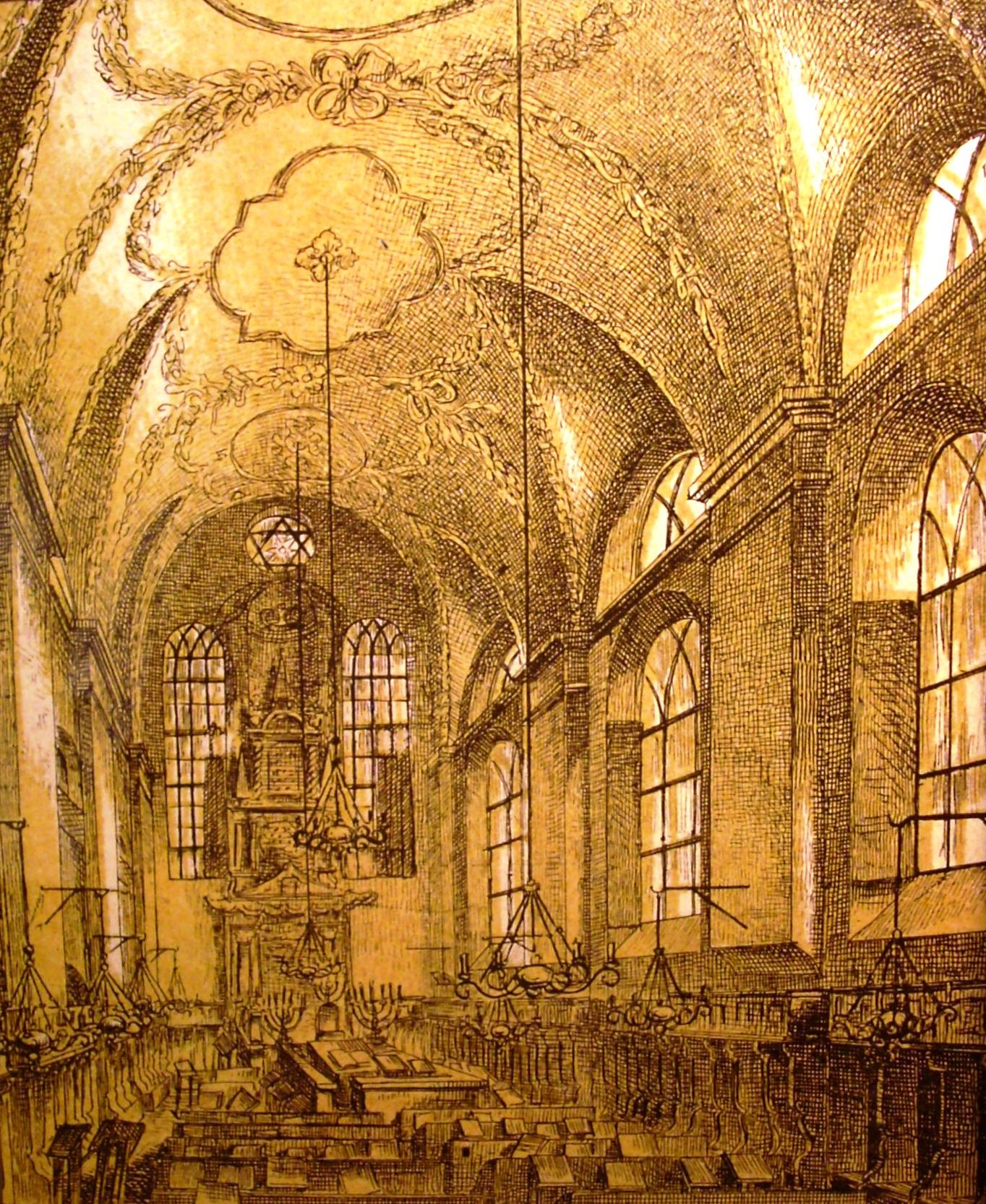The Klausen Synagogue on:
[Wikipedia]
[Google]
[Amazon]
The Klausen Synagogue (, ''kloyz shul'') is nowadays the largest synagogue in the former 

Jewish Museum: Klausen Synagogue
{{Authority control Synagogues in Prague Museums in Prague Former synagogues in the Czech Republic Synagogues preserved as museums Baroque synagogues Josefov (Prague)
Prague
Prague ( ; cs, Praha ; german: Prag, ; la, Praga) is the capital and largest city in the Czech Republic, and the historical capital of Bohemia. On the Vltava river, Prague is home to about 1.3 million people. The city has a temperate ...
Jewish ghetto and the sole example of an early Baroque synagogue in the ghetto. Today the synagogue is administered by the Jewish Museum in Prague
The Jewish Museum in Prague (Czech: Židovské muzeum v Praze) is a museum of Jewish heritage in the Czech Republic and one of the most visited museums in Prague. Its collection of Judaica is one of the largest in the world, about 40,000 objects ...
.

History
Beginnings
The interior today In 1570s a renowned businessman and benefactor of the ghetto,Mordechai Maisel Mordecai Marcus Meisel ( cs, Miška Marek Majzel; 1528, Prague – 13 March 1601, Prague) was a philanthropist and communal leader in Prague.
Biography
Born to the Meisel family. In 1542 and 1561 his family, with the other Jewish inhabitants, w ...
, decided to build in the area of the present Klausen Synagogue a kloyz
A kloyz ( kloyzn; yi, קלויז) or a hesger ( hesgerim) was an Ashkenazi, Ottoman, or Italian Jewish house of study and worship popular during the 16th to 19th centuries. It is closely related to a beth midrash, though the two are differen ...
, or complex of buildings, probably including synagogue
A synagogue, ', 'house of assembly', or ', "house of prayer"; Yiddish: ''shul'', Ladino: or ' (from synagogue); or ', "community". sometimes referred to as shul, and interchangeably used with the word temple, is a Jewish house of worshi ...
s and a private Talmud
The Talmud (; he, , Talmūḏ) is the central text of Rabbinic Judaism and the primary source of Jewish religious law (''halakha'') and Jewish theology. Until the advent of modernity, in nearly all Jewish communities, the Talmud was the cente ...
ic school. The famous Prague rabbi and scholar
A scholar is a person who pursues academic and intellectual activities, particularly academics who apply their intellectualism into expertise in an area of study. A scholar can also be an academic, who works as a professor, teacher, or researche ...
Maharal
Judah Loew ben Bezalel (; between 1512 and 1526 – 17 September 1609), also known as Rabbi Loew ( Löw, Loewe, Löwe or Levai), the Maharal of Prague (), or simply the Maharal (the Hebrew acronym of "''Moreinu ha-Rav Loew''", 'Our Teacher, Rabbi ...
taught at this school. In 1689, the great fire of the ghetto burned down all the kloyzn and the synagogue is named after them.
Shelomo Khalish Cohen, a rabbi
A rabbi () is a spiritual leader or religious teacher in Judaism. One becomes a rabbi by being ordained by another rabbi – known as ''semikha'' – following a course of study of Jewish history and texts such as the Talmud. The basic form of ...
of the burned down synagogue, which had been part of the complex, then initiated construction of a new synagogue in early baroque style at the site. In 1694, the building was finished and two years later monumental three-tiered aron ha-kodesh
A Torah ark (also known as the ''Heikhal'', or the ''Aron Kodesh'') refers to an ornamental chamber in the synagogue that houses the Sefer Torah, Torah scrolls.
History
The ark, also known as the ''ark of law'', or in Hebrew the ''Aron Kodesh'' ...
, the Torah Ark, was added, thanks to the endowment of Samuel Oppenheimer
Samuel Oppenheimer (born 21 June 1630, Heidelberg – 3 May 1703, Vienna) was an Ashkenazi Jewish banker, imperial court diplomat, factor, and military supplier for the Holy Roman Emperor. He enjoyed the special favor of Emperor Leopold I, to w ...
, an affluent and influential personality of the Austrian monarchy
The Habsburg monarchy (german: Habsburgermonarchie, ), also known as the Danubian monarchy (german: Donaumonarchie, ), or Habsburg Empire (german: Habsburgerreich, ), was the collection of empires, kingdoms, duchies, counties and other polities ...
, part of which Prague was at the time. Many important rabbis, for example Elazar Fleckeles
Elazar Fleckeles (August 26, 1754 in Prague – April 27, 1826) was a Bohemian rabbi and author.
Biography
Fleckeles was a pupil of and Yechezkel Landau. At the age of twenty-four he became rabbi of Kojetein, a small town in Moravia. In 1780 he ...
, are also connected with the synagogue.

Modern times
In 1883–84, the synagogue was reconstructed by an architectBedřich Münzberger
Bedřich or Bedrich may refer to:
*Bedrich Benes (born 1967), computer scientist and a researcher in Computer Graphics
* Bedřich Bloudek, Czech military leader who participated in the Slovak Uprising in 1848
* Bedřich Bridel (1619–1680), Czech ...
, who also partook in decorating the Spanish Synagogue. Massive urban renewal of the ghetto at the turn of the 20th century left the Klausen Synagogue intact, while other baroque synagogues such as the Zigeuner, Great Court and New Synagogue were demolished. Nowadays, the Klausen Synagogue is thus the only example of a baroque synagogue in the former ghetto.
During the World War II
World War II or the Second World War, often abbreviated as WWII or WW2, was a world war that lasted from 1939 to 1945. It involved the vast majority of the world's countries—including all of the great powers—forming two opposin ...
a depository as well as an exposition was located in the synagogue. As soon as one year after the war, an exposition about Jewish festivals
Jewish holidays, also known as Jewish festivals or ''Yamim Tovim'' ( he, ימים טובים, , Good Days, or singular , in transliterated Hebrew []), are holidays observed in Judaism and by JewsThis article focuses on practices of mainstre ...
and Minhag, customs was opened there. The synagogue was reconstructed in years 1960, 1979–81 and 1983 (aron ha-kodesh
A Torah ark (also known as the ''Heikhal'', or the ''Aron Kodesh'') refers to an ornamental chamber in the synagogue that houses the Sefer Torah, Torah scrolls.
History
The ark, also known as the ''ark of law'', or in Hebrew the ''Aron Kodesh'' ...
only). One year after the last mentioned reconstruction, a new permanent exhibition of Hebrew manuscripts and early prints was opened.
Recent history and exposition
About a decade later, during years 1995–96, the synagogue was restored again and the topic ofJewish festivals
Jewish holidays, also known as Jewish festivals or ''Yamim Tovim'' ( he, ימים טובים, , Good Days, or singular , in transliterated Hebrew []), are holidays observed in Judaism and by JewsThis article focuses on practices of mainstre ...
and Minhag, customs returned to the exposition. Visitors are invited to get acquainted with the foundational texts of Judaism
Judaism ( he, ''Yahăḏūṯ'') is an Abrahamic, monotheistic, and ethnic religion comprising the collective religious, cultural, and legal tradition and civilization of the Jewish people. It has its roots as an organized religion in the ...
(Torah
The Torah (; hbo, ''Tōrā'', "Instruction", "Teaching" or "Law") is the compilation of the first five books of the Hebrew Bible, namely the books of Genesis, Exodus, Leviticus, Numbers and Deuteronomy. In that sense, Torah means the s ...
and Talmud
The Talmud (; he, , Talmūḏ) is the central text of Rabbinic Judaism and the primary source of Jewish religious law (''halakha'') and Jewish theology. Until the advent of modernity, in nearly all Jewish communities, the Talmud was the cente ...
), sacral space of Judaism (traditional components of the synagogue interior, order of synagogue prayer service and texts and objects used during it, etc.). Introduction of Jewish Festivals
Jewish holidays, also known as Jewish festivals or ''Yamim Tovim'' ( he, ימים טובים, , Good Days, or singular , in transliterated Hebrew []), are holidays observed in Judaism and by JewsThis article focuses on practices of mainstre ...
and Jewish family life in its dailiness as well as in its important milestones, for instance birth, circumcision
Circumcision is a surgical procedure, procedure that removes the foreskin from the human penis. In the most common form of the operation, the foreskin is extended with forceps, then a circumcision device may be placed, after which the foreskin ...
, wedding
A wedding is a ceremony where two people are united in marriage. Wedding traditions and customs vary greatly between cultures, ethnic groups, religions, countries, and social classes. Most wedding ceremonies involve an exchange of marriage vo ...
, etc. follows. The exposition
Exposition (also the French for exhibition) may refer to:
*Universal exposition or World's Fair
*Expository writing
**Exposition (narrative)
*Exposition (music)
*Trade fair
* ''Exposition'' (album), the debut album by the band Wax on Radio
*Exposi ...
continues in the Ceremonial Hall with the topic of the end of life.
Sources
Literature
* PAŘÍK, Arno, Dana CABANOVÁ a Petr KLIMENT, ''Pražské synagogy = Prague Synagogues = Prager Synagogen'', 2. vyd., Praha: Židovské muzeum v Praze, 2011, s. 74–83. * PAŘÍK, Arno "Pražským ghettem po stopách Maharala" in Putík, Alexandr (ed.), Cesta životem: Rabi Jehuda Leva ben Becalel kol. 1525–1609, Praha: Academia a Židovské muzeum v Praze, s.246–271. = "Following Maharal on the way through the Prague Ghetto" in ''Path of Life: Rabbi Judah Loew ben Bezalel (ca. 1525–1609),'' etc.External links
Jewish Museum: Klausen Synagogue
{{Authority control Synagogues in Prague Museums in Prague Former synagogues in the Czech Republic Synagogues preserved as museums Baroque synagogues Josefov (Prague)